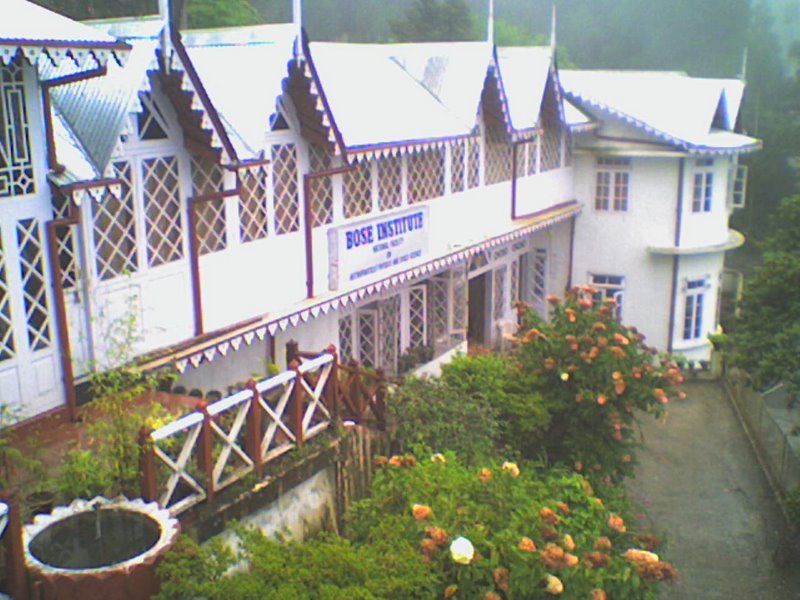Winter School on AstroParticle Physics (WAPP 2009)
December 14-22, 2009 at Mayapuri, Darjeeling
Organized by Bose Institute, Kolkata and TIFR, Mumbai

Winter School on AstroParticle Physics (WAPP 2009) December 14-22, 2009 at Mayapuri, Darjeeling Organized by Bose Institute, Kolkata and TIFR, Mumbai
| |
NEW |
WORKSHOP ON ASTROPARTICLE PHYSICS (December 10-12, 2009)
WINTER SCHOOL ON ASTROPARTICLE PHYSICS (December 14-22, 2009)
The Winter School on Astroparticle Physics (WAPP 2009) is being organized at Mayapuri, Bose Institute, Darjeeling in association with TIFR, Mumbai during December 14-22, 2009 in Darjeeling Download School Poster Who Should Apply? Exceptionally bright students in the first year of M.Sc. and final year of B.Sc. in physics, and young research scholars working in Astroparticle Physics and Space Science are encouraged to apply. Students in the final year of B.E./B.Tech. in Electronics and related areas with an outstanding academic record, who have a deep interest in Astroparticle Physics and Space Science may also apply. We also invite applications from a few college lecturers to attend this school to familiarize them with modern techniques of experimental physics. A letter of recommendation (to be emailed by November 15, 2009 to wapp09@bosemain.boseinst.ac.in mentioning the applicant's name and reference number) from someone who is familiar with the applicant's work is also needed. Last date of application for the students to the school as well as for financial support is November 15, 2009. Selected students would be informed by November 30, 2009. Objective and scope of WAPP: The philosophy of WAPP is to expose young minds to the excitement in the field of experimental high-energy astroparticle physics. The WAPP program consists of two sessions of total of 7 hours 30 minutes duration every day. The first session in the morning consists of a set of 2 or 3 lectures, in advanced areas of high-energy physics, astroparticle physics, cosmic ray physics, computer simulations and radiometric measurements. In the second session in the afternoon the students would have an opportunity to acquire hands-on experience by working with state-of-the-art equipment. They would be using high-speed electronics, fast photomultiplier tubes, plastic scintillators etc. to make measurements on the properties of muons. They would also make measurements with microwaves, exposing them to the excitement of original research. The students participating in WAPP would be exposed to the modern concepts in these areas, which could motivate them to take up a career of research in these frontier areas. Morning Lecture Session: During the period 14-22 December 2009 the school would be conducted on 8 days, with 18 December 2009 would be holiday. During these 8 days a total of 24 lectures, each of 50+10 minutes duration, would be given during the morning sessions covering the following areas : |
||
(1) Particle physics (2) Acceleration mechanism (3) Cosmic ray and its detection (4) Electronics for signal processing (5) Computational methods for simulation (6) Radiometric measurements in millimetre wave | ||
Afternoon Laboratory Session: A number of laboratory experiments are being setup with five broad themes namely (1) Operation of scintillators, (2) Signal processing, (3) Measurements using relativistic radiation, (4) Analysis of the observed data, (5) Experiments with microwaves. Each participant would have an opportunity to take part in one experiment per day for a total of 8 experiments over the course of the winter school. |
||